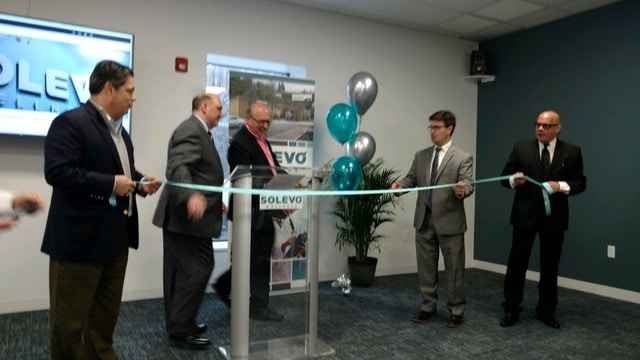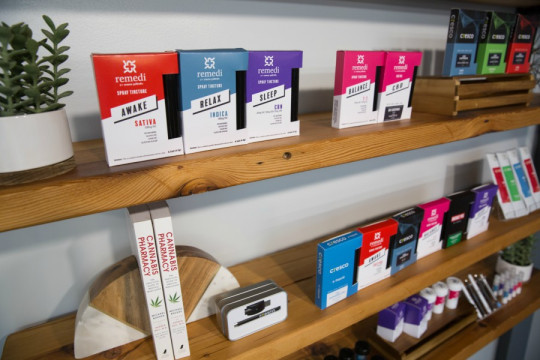Well, praise the lord and pass the butter beans. It appears that there are actually reasonable people on PA's MMJ board.
Now this, however, is BS:
Pa. Secretary of Health Rachel Levine will weigh the board’s recommendations. She could take up to a year to decide whether to make the changes to the medical marijuana program’s regulations.
So, wtf is she going to be doing for a frakin YEAR? Hmmmm?
Pa. marijuana board OKs sale of cannabis leaf and flower
The state’s medical marijuana advisory board Monday morning voted to allow the sale of whole-plant cannabis — dry leaf and flower — and recommended expanding the number of serious health conditions that would qualify patients to participate in the program.
Currently, Pennsylvania only allows for the sale of marijuana oils, extracts, pills, and tinctures.
Pa. Secretary of Health
Rachel Levine will weigh the board’s recommendations. She could take up to a year to decide whether to make the changes to the medical marijuana program’s regulations.
Allowing the sale of leaf and flower could reduce the cost of the medicine for patients, many of whom have recoiled at the steep prices and limited selection of processed marijuana products for sale at dispensaries. Patients in California and Colorado buy more flower than oils, extracts, or premade edibles.
State law prohibits the sale of “smokable” marijuana. If Levine accepts the proposal, dispensaries will not sell so-called pre-rolls or joints. Patients would be told to vaporize the leaf or bud in an electronic device. However, if they choose to wrap their medicine in a cigarette paper and light it, there’s little chance authorities will come down hard on them.
“Smoking flower is the traditional cannabis therapy method that humans have used for 10,000 years,” said Chris Goldstein, an advocate who writes the
Philly420 column for
Philly.com. “We’ve never had a report of state police or health officials cracking down on how patients consume their cannabis.”
The state also prohibits sale of medical marijuana in an edible form. But many patients buy the oils, bake it into foods or infuse it into things like coconut oil, Goldstein said.
The Department of Health has granted permits to 12 marijuana growers and may issue permits to 13 more this summer. Only two growers are currently providing medicines to nine operating dispensaries. Program director John Collins told the advisory board that six growers are expected to ship medical cannabis by month’s end.
If Levine approves, several new qualifying ailments may be added to the existing list of 17. The board suggested making the medicine available to patients suffering from terminal illness, neurodegenerative diseases, and spinal-cord damage. One proposal recommended broadening the definitions of chronic and intractable pain to include withdrawal symptoms from opioids.
The board also voted unanimously to allow doctors who want to write recommendations for cannabis to opt-out of a public registry. Currently, the state publishes all the names of participating physicians. Some doctors have been reluctant to take part for fear they could draw the attention of federal authorities. Though 29 states have legalized marijuana, the federal government continues to outlaw all forms of the drug.
Advocates think eliminating the public registry is a bad idea. Prospective patients still report trouble finding a participating doctor who will see them, said Goldstein.
About 500 doctors — out of a total of 53,000 state-licensed physicians — have registered to write recommendations. About 28,000 Pennsylvanians have expressed interest in participating, and the state has issued cards to 11,000 patients enabling them to buy cannabis medicines.
Recommendations made by Advisory Board Approved
The Medical, Patient/Caregiver and Regulatory Subcommittees recommend that the program expand the form of medical marijuana permitted under Act 16 to include dry leaf or plant form for administration by vaporization. 11-0-1 Approved
The Patient/Caregiver Subcommittee recommends that the medical condition of “Cancer” be revised to “Cancer; including remission therapy.” 10-1-1 Approved
The Patient/Caregiver Subcommittee recommends that the medical condtion of “Neurodegenerative Disesases” be added to the list of serious medical conditions. 11-0-1 Approved
The Patient/Caregiver Subcommittee recommends that the medical condition of “Damage to the nervous tissue of the spinal cord with objective neurological indication of intractable spasticity” be changed to “Damage to the nervous tissue of the CNS (brain-spinal cord) with objective neurological indication of intractable spasticity, and other associated neuropathies.” 11-0-1 Approved
The Patient/Caregiver Subcommittee recommends adding the medical condition of “Dyskinetic and Spastic Movement Disorders.” 10-1-1 Approved
The Patient/Caregiver Subcommittee recommmends adding the medical condition of “Addiction substitute therapy-opioid reduction.” 6-4-2 Approved
The Patient/Caregiver Subcommittee recommends that the certification to use medical marijuana be modified to limit the practitioner’s ability to specify medical marijuana form and dosing. 3-8-1 NOT APPROVED
The Patient/Caregiver Subcommittee recommends establishing a default time period of one year on a patient’s certification. 6-5-1 Approved
The Medical Subcommittee and the Regulatory Subcommittee recommend that the program not expand the types of medical professionals who can issue certifications to patients. The Medical Subcommittee and the Regulatory Subcommittee further recommend that the program continue to accept input from the patient and provider community and consider adding additonal medical professions in the future. 10-1-1 Approved
The Medcial Subcommittee recommeds that no medical conditions be removed from the list of serious medical conditions. 11-0-1 Approved
The Medical and Patient/Caregiver Subcommittees recommend that “Severe chronic or intractable pain in which conventional therapeutic intervention and opiate therapy is contraindicated or ineffective” be changed to “Severe chronic or intractable pain.” 11-0-1 Approved
The Medical Subcommittee recommends a process be established for a subcommittee of the board to review and approve additional conditions on a continous basis. 12-0-1 Approved
The Medical Subcommittee recommends that patients under the age of 18 be certified by a physician who is Board Eligible/Certified in Pediatrics or Pediatric Specialities, Neurology with Special Qualification in Child Neurology, Child and Adolescent Psychiatry, or Adolescent Medicine (whether through Pediatrics, Internal Medicine or Family Practice.) 10-2-1 Approved
The Medical Subcommittee recommends that more research be done on the use of medical marijuana for addiction treatment. 12-0-1 Approved
The Patient/Caregiver Subcommittee recommends adding the medical condition of “terminally ill,” meaning a medical prognosis of life expectancy of approximately one year or less if the illness runs its normal course. 11-1-1 Approved
The Patient/Caregiver Subcommittee recommends that the Department of Health encourage Clinical Registrants under Chapter 20 to study the medical benefits of cannabis for individuals with autoimmune diseases. 12-0-1 Approved
The Regulatory Subcommittee recommends that the program make no changes to the Act concerning the number of growers/processors and dispensaries at present. The program should assess the numbers as the program expands. 12-0-1 Approved
The Patient/Caregiver Subcommittee recommends allowing dispensaries to purchase vaporizing devices and other ancillary products from sources other than grower/processor permittees. 9-3-1 Approved
The Medical and Patient/Caregiver Subcommittees recommend that practitioners have the option to opt-out of the public registry. 12-0-1 Approved

